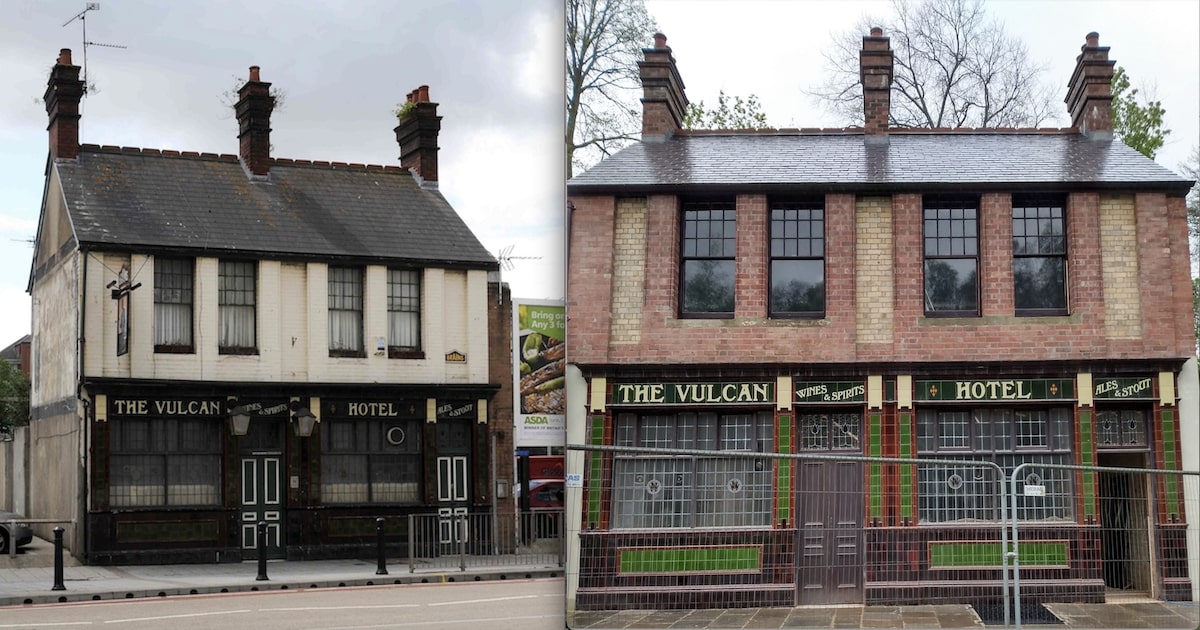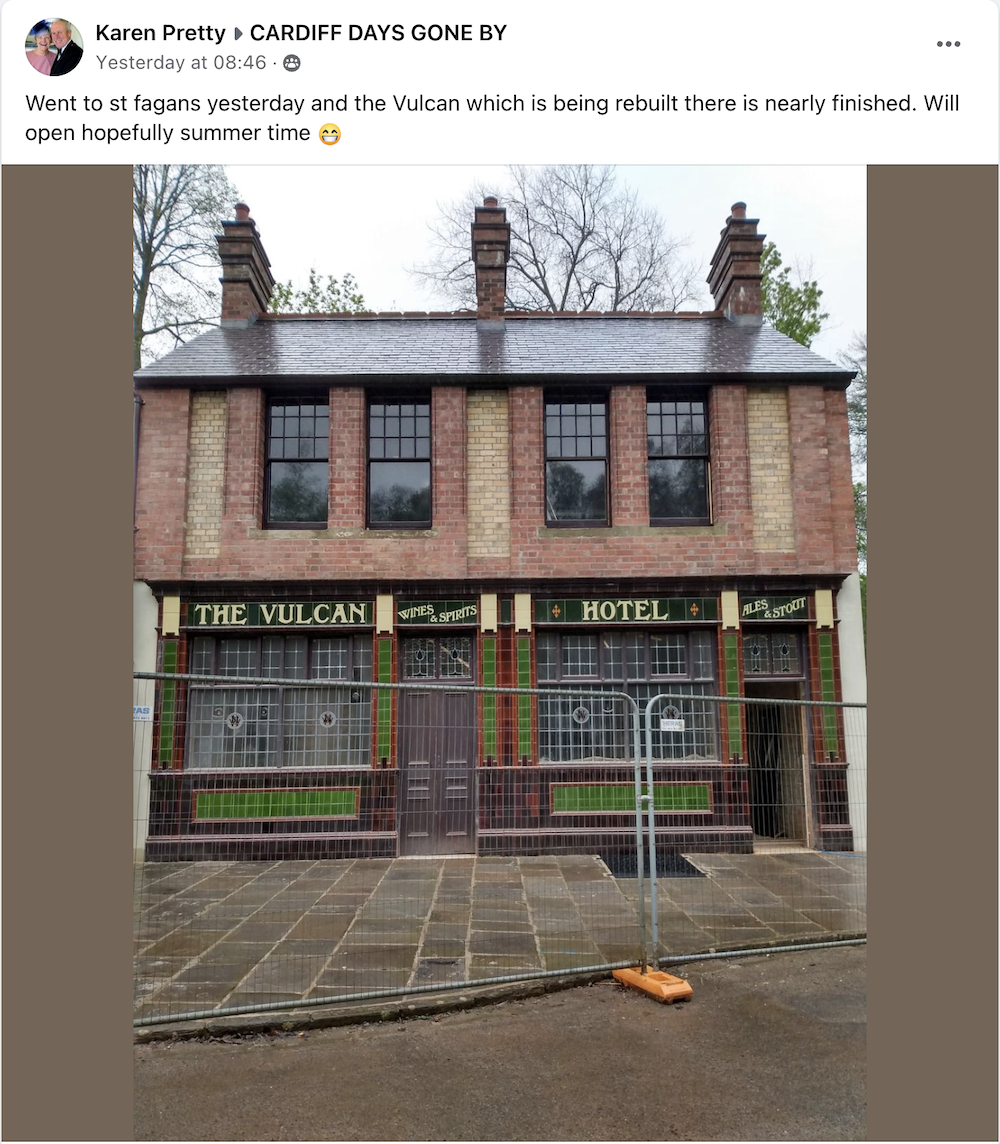Rebuilding of historic Cardiff pub The Vulcan takes shape at St Fagans

As the latest picture of historic pub The Vulcan at St Fagans National Museum of History shows, work on rebuilding one of Cardiff’s much loved pubs has taken a huge step forward.
The Vulcan closed its doors a decade ago in 2012 and was then dismantled brick by brick, to be reassembled in the grounds of the museum.
A picture taken yesterday and posted in the Cardiff Days Gone By Facebook group by site user Karen Pretty illustrates how work has progressed to the point where the scaffolding surrounding the building has now been removed and the pub has re-emerged ready to continue its proud history.
Windows have now been fitted and the facade is almost complete.

The Vulcan, which originally stood at 10 Adam Street, Adamsdown, Cardiff, is being reinterpreted as a working pub as it was in the First World War and displayed as it was in 1915, an important year for the pub.
Its interior had just been redesigned to include gents’ urinals and its distinctive green tiles added to the front of the building.
The pub is being carefully rebuilt using the original stones, bricks and woodwork, all placed exactly in their original positions.
Work on the interior will start soon with the aim of a local brewery will operating it as a licensed bar.
The aim is that The Vulcan will once more open its doors at the museum in 2024.
10 years ago today I took a photo of The Vulcan pub being taken down brick by brick ready to be rebuilt at St Fagans. Looking forward to having a pint there once again – soon. @StFagans_Museum pic.twitter.com/F3mQzNlT12
— geraintday (@geraintday) August 16, 2022
The history of The Vulcan pub
The Vulcan was originally built in Newtown, Cardiff during the 19th century.
It originally opened its doors in 1853.
At the time Cardiff was growing from being a small town to the most important coal port in the world.
Newtown, now long gone, was known as ‘Little Ireland’ because it was home to many Irish people who came across to Wales during the Irish famine to build Cardiff docks.
Originally, beds in the front two upstairs rooms of the Vulcan were rented out to seamen whose ships were in port.
This is why it was originally known as a hotel and pub. The landlord’s family lived in the back rooms.
It was popular with the steel and dock workers from the working class communities.
The pub was built next to the nearby ironworks which provided the inspiration for its name: Vulcan was the Roman god of fire and metalworking, often depicted holding a hammer as used by a blacksmith.
(Credit: St Fagans National Museum of History)
Curators at the museum have already been out and about conducting oral histories with former customers and landlords of the pub, recording and filming their experiences and memories. But they’d love to find out more, so if you has any stories or photographs or objects related to the Vulcan, get in touch.
Find out more HERE
Support our Nation today
For the price of a cup of coffee a month you can help us create an independent, not-for-profit, national news service for the people of Wales, by the people of Wales.





